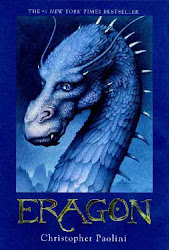James Long “The Lives She Left
Behind“ (2010) In a Somerset village, a teenage boy tells a teacher about a
story he should know nothing about. The boy's impossible knowledge uncovers
memories the teacher has done his utmost to forget. As the teacher relives his
past, three girls arrive in the village of Pen Selwood, one of them drawn by an
ancient instinct. Her actions reignite
the love story begun in "Ferney". An
interesting follow up to the wonderful "Ferney" but it lacks the impact and craft of the first book. 7/10
Michael White “The Medici Secret”
(2008) A paleopathologist makes a strange discovbery in the tomb of the Medicis. The resultant adventures searching for the
Medici Secret leave a trail of deaths in their wake. In between the thrilling action of the
twenty-first century the book flips back to the 1400s and the activities of the
Medici family at that time. 8/10
Peter Novobatzky and Ammon Shea “Depraved
English” (1999) A cornucopia of weird and wonderful words gleaned from a
variety of sources but all indicative of unusual (and often unpleasant) appetites
and ways of acting. Certainly not for the prudish.8/10
Susie Dent “Words of the Year”
(2008) (re-read)
Peter Ackroyd “The Great Fire of
London” (1982) An uninspiring Little Dorrit for the late twentieth century. 6/10
John Tingey “The Englishman who
posted himself and other curiosities”
(2010) The amazing story of Willie Reginald Bray who spent much of his
life playing with the postal services and collecting autographs by post. The Post Office in the first half of the
twentieth century was obviously far more amenable to being used and
abused. Bray was clever insofar as he
had a copy of the PO rules and twisted them to his advantage. His autographs were collected by writing to
people – often in unusual ways – and he became the self-styled but undisputed
autograph king. 9/10
Gustave Flaubert “The Dictionary of
Accepted Ideas” (translated c1968) A wonderfully sarcastic look at the mores
and ‘appropriate’ things to say in the 1850s. One cannot grasp the mood of any oarticular entry - some are very facetious while others are almost genuine and there is an element of truth in so many of them (as there is in many cliches). A highly amusing book and a great example of plus ca change plus c'est la meme chose. 9/10
Kim Stanley Robinson “Galileo’s
Dream” (2009) This book mixes the exploration of a scientific discovery with
tremendous characterisation and a real joy in the use of words. It also takes Galileo, and us, well into the
future to explore the planets on foot. The quotations from Galileo’s writings
are most enlightening while the plot is a science fiction and time travel novel
with a difference. Kim Stanley Robinson was born in
1952 and, after travelling and working around the world, has now settled in
California. He is widely regarded as the finest science fiction writer working
today, noted as much for the verisimilitude of his characters as the
meticulously researched hard science basis of his work. He has won just about
every major SF award there is to win and is the author of the massively
successful and lavishly praised Mars series. 10/10
Daryn Lake “The Mills of God” (2010)
This book is awful. Written by someone
whose grammar would have had them thrown out of my school, it only kept me
reading because the unbelievable plot had a promising murder mystery that I wanted to
solve. Imagine my frustration when the ‘solution’
bore no relationship to the events that had gone before. It is probably the only book I have ver finished that was so bad - normally anything like it would only last a few pages before being put on the pile for the charity shop. 2/10 and I’m not sure why I’m even giving it
2!
Mark Forsyth “The Horologicon”
(2012) Following on from his highly successful “Etymologicon” this is a day’s
jaunt through the lost words of the English language. Like its predecessor it is a must for all logophiles.
10/10
David Crystal “Johnson’s Dictionary –
an anthology” (2005) A potpourri of 4000 of the most entertaining and historically
stimulating English words and definitions from Abactor to Zootomy extracted from
the world’s foremost feat of lexixography selected by the superexcellent
linguist and verbally gymnastick David Crystal.
10/10
Nick Parker (Ed) “Bling, Blogs and Bluetooth” (2006) Modern
language for Oldies! A compendium of
articles about some of the words to have come into common usage
in recent times. 8/10
Nigel Rees “A Word in Your
Shell-like” (2006) Some 6000 curious and everyday phrases explained. It is
768 pages of very small print so I have only dipped into it and not read it from cover to cover. I thought some of the explanations
questionable and some seemed to be merely copies of Brewer’s Phrase and Fable
but despite these reservations it is an essential reference work for anyone’s
shelves. 9/10
The National Trust “Mothballs and
Elbow Grease” (2004) Sayings, proverbs and catchphrases which show how many of
our everyday phrases have their origins in the commonplace. 8/10
Elizabeth Knowles with Julia Elliott
(Ed.s) “The Oxford Dictionary of New Words” (1997) New words that have been in
the news during the decade and a half from the early eighties to the
mid-nineties. It includes about 2000
high profile words showing how each came to prominence. 8/10
Strangest Books ‘Strangest Museums
in Britain and the best Worldwide' (undated – and without any copyright
information which is, in itself, very strange) ISBN 978-0-9543202-4-9 A most amusing and fascinating read. 9/10


No comments:
Post a Comment
Hello folks - your comments are always welcome.